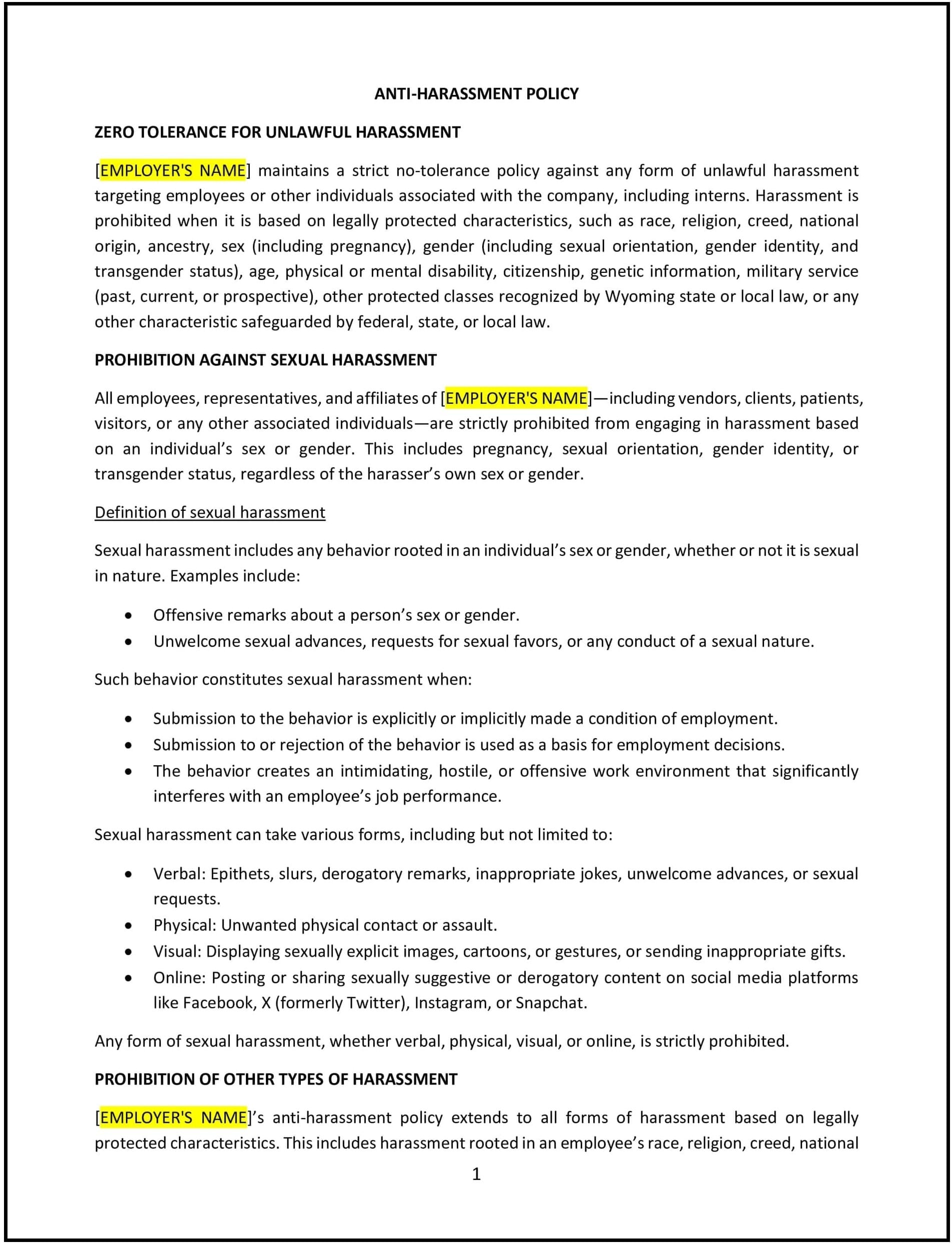Got contracts to review? While you're here for policies, let Cobrief make contract review effortless—start your free review now.

Customize this template for free
Anti-harassment policy (Wyoming)
In Wyoming, an anti-harassment policy establishes guidelines for creating and maintaining a workplace that is free from harassment, ensuring all employees are treated with respect and dignity. This policy defines unacceptable behavior, outlines reporting mechanisms, and specifies procedures for addressing complaints. It supports compliance with state and federal anti-discrimination laws while promoting a safe and inclusive work environment.
How to use this anti-harassment policy (Wyoming)
- Define harassment: Clearly describe what constitutes harassment, including examples such as verbal, physical, or visual conduct that creates a hostile or offensive work environment.
- Set reporting procedures: Provide clear instructions for employees to report incidents of harassment, including multiple reporting channels to ensure accessibility.
- Outline investigation processes: Establish a fair and confidential process for investigating complaints, including timelines and steps for resolution.
- Prohibit retaliation: Clearly state that retaliation against employees who report harassment or participate in investigations is strictly prohibited.
- Train employees and managers: Provide regular training on recognizing, preventing, and addressing harassment to promote awareness and compliance.
- Monitor and enforce: Periodically review the policy’s effectiveness and ensure consistent enforcement of its provisions.
Benefits of using this anti-harassment policy (Wyoming)
This policy offers several advantages for Wyoming businesses:
- Supports compliance: Helps the business align with state and federal anti-harassment laws, reducing the risk of legal claims or penalties.
- Protects employee well-being: Promotes a safe and respectful workplace, improving employee morale and productivity.
- Enhances business reputation: Demonstrates the business’s commitment to ethical practices and inclusivity, attracting and retaining top talent.
- Reduces conflict: Establishes clear guidelines for addressing harassment, minimizing workplace disputes and fostering a collaborative environment.
- Encourages accountability: Provides employees and managers with tools to identify and address harassment, fostering a culture of responsibility.
Tips for using this anti-harassment policy (Wyoming)
- Reflect Wyoming-specific laws: Ensure the policy complies with Wyoming’s anti-discrimination laws and addresses unique aspects of the local workplace culture.
- Provide anonymous reporting options: Offer employees the ability to report harassment anonymously to encourage open communication without fear of retaliation.
- Update regularly: Review and update the policy periodically to reflect changes in laws, workforce dynamics, or best practices.
- Encourage leadership support: Ensure that management leads by example in fostering a harassment-free workplace and takes complaints seriously.
- Promote awareness: Use posters, handouts, and digital communication to remind employees about the policy and its importance.